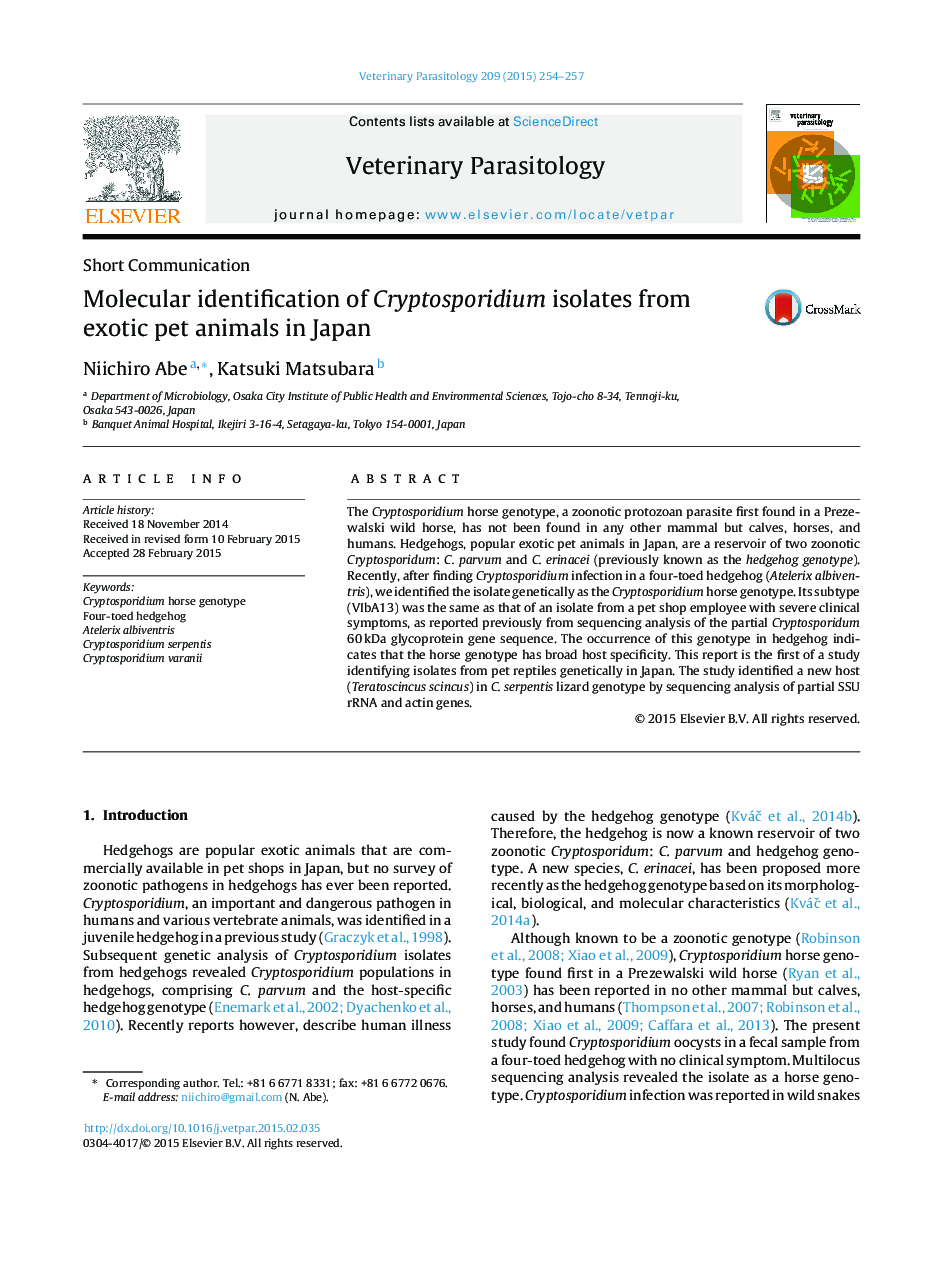| Article ID | Journal | Published Year | Pages | File Type |
|---|---|---|---|---|
| 5802725 | Veterinary Parasitology | 2015 | 4 Pages |
â¢Cryptosporidium horse genotype was identified in a pet hedgehog, Atelerix albiventris.â¢Horse genotype has broader host specificity than previously reported.â¢GP60 subtype was identical to the isolate from a pet shop employee with diarrhea.â¢This molecular finding of Cryptosporidium isolates from reptile pets is the first in Japan.â¢Teratoscincus scincus is a new host of Cryptosporidium serpentis lizard genotype.
The Cryptosporidium horse genotype, a zoonotic protozoan parasite first found in a Prezewalski wild horse, has not been found in any other mammal but calves, horses, and humans. Hedgehogs, popular exotic pet animals in Japan, are a reservoir of two zoonotic Cryptosporidum: C. parvum and C. erinacei (previously known as the hedgehog genotype). Recently, after finding Cryptosporidium infection in a four-toed hedgehog (Atelerix albiventris), we identified the isolate genetically as the Cryptosporidium horse genotype. Its subtype (VIbA13) was the same as that of an isolate from a pet shop employee with severe clinical symptoms, as reported previously from sequencing analysis of the partial Cryptosporidum 60Â kDa glycoprotein gene sequence. The occurrence of this genotype in hedgehog indicates that the horse genotype has broad host specificity. This report is the first of a study identifying isolates from pet reptiles genetically in Japan. The study identified a new host (Teratoscincus scincus) in C. serpentis lizard genotype by sequencing analysis of partial SSU rRNA and actin genes.
